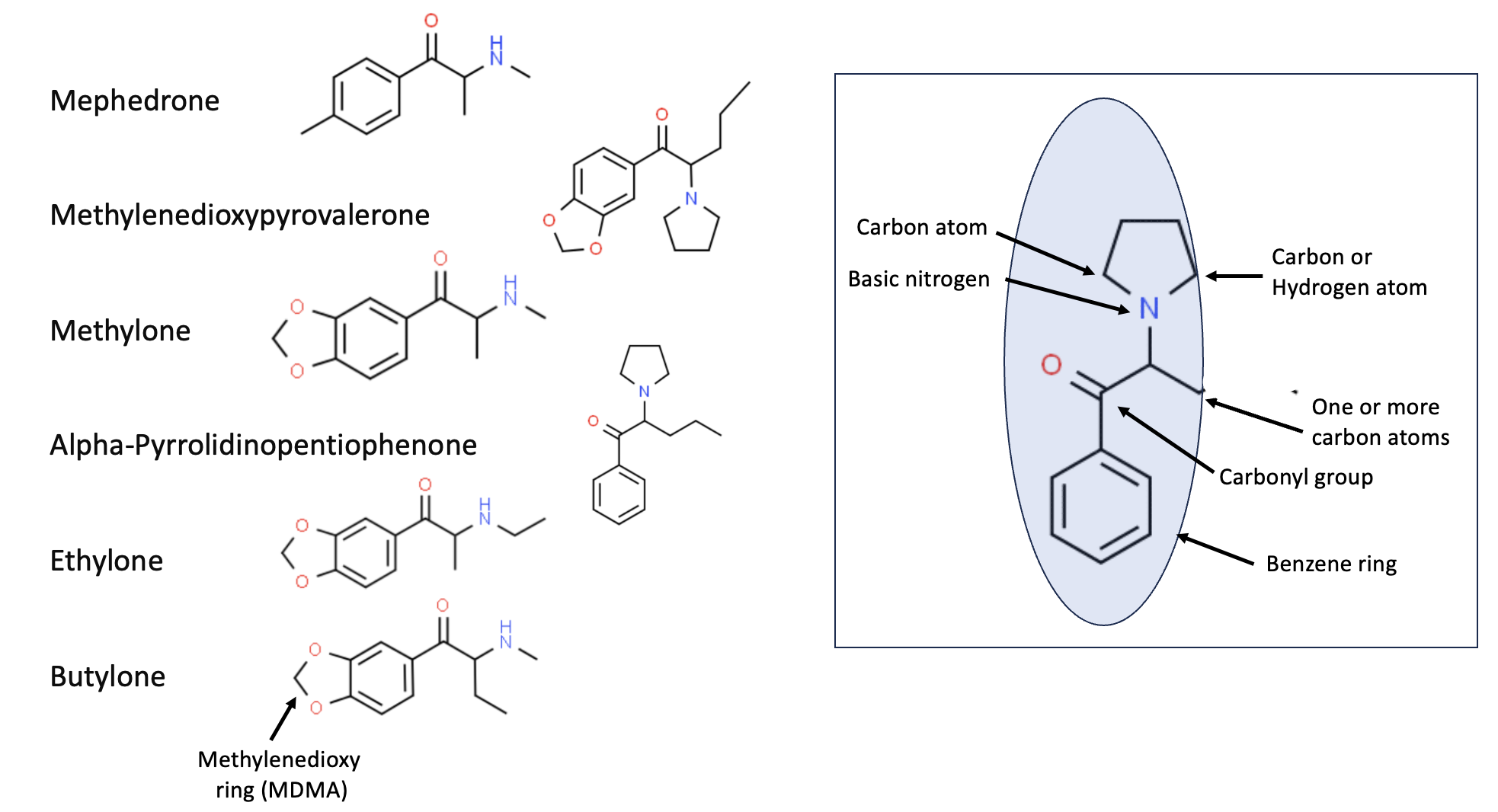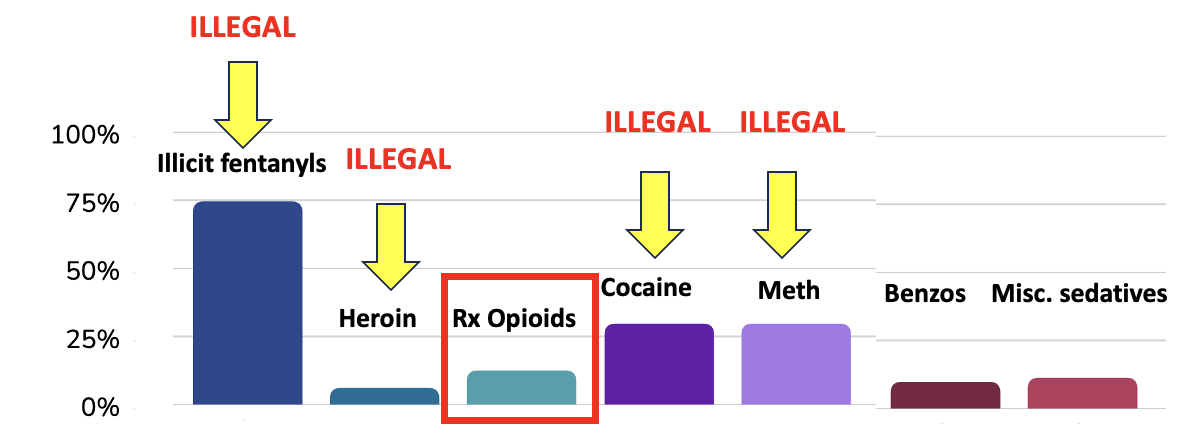
Face-chewing: Part 1 (2012)
Back in 2012, there was a cluster of rather strange cases in the news, especially originating from the Miami area, where people displayed a rather strange behavior. For reasons only they could describe, these folks decided it was a good idea to chew on other people's faces. A poor display of dining etiquette by any measure. The headlines for the incident were non-stop.
At this time, police suspected that the men were smoking herbs sprayed with chemicals known in street parlance as "bath salts," which is a misnomer because they are neither salts nor used for bathing. Some other names for these drugs are Spice, Black Mamba, Bombay Blue, and K2. They were legal at the time (1) partly because they were labeled "not for human consumption." They could easily be bought in gas stations, convenience stores, or on the street.
(Update 2024): Sometime after the incident a tox report on one of the two men came back. It ruled out not only bath salts but also other drugs, like PCP, LSD, others, alcohol, and prescription meds that could potentially cause similarly violent behavior (see below), finding only marijuana present. Sorry, I don't believe it. In any case, these drugs, whether used to consume faces or not, are bad news. Synthetic cathinones (another name for bath salts) were responsible for 304 calls to poison control centers in 2010; by 2011 that number had shot up to more than 6,100.
Here is a look at the family of drugs that make up "bath salts." (Figure 1). There's a nice pharmacology lesson for those so inclined.

Figure 1. (Left) Six members of the cathinone series, powerful stimulants that can cause hallucinations, delusions, and erratic behavior. And presumably, face chewing. (Right) The pharmacophore (2) of the cathinones, shown in the blue oval, is quite specific. All six drugs contain a benzene ring connected by a carbonyl group (ketone) to a carbon attached to a basic nitrogen bound to at least one carbon atom. It would be trivial to design and synthesize dozens of novel analogs.
Chewing redux (2024)
A DeFuniak Springs, Florida man bit off more than he could chew. While under the influence of multiple drugs, James Anderson allegedly took a hunk out of the skull of a sheriff deputy's head while at the annual Vortex Springs SolFest, which is described as a "captivating journey into a world of electrifying music, immersive art, and spiritual rejuvenation." It would seem that Anderson was a bit too immersed. Given the drugs in his system, this is not too surprising.
Quite a concoction
According to the Holmes County Sheriff’s Office Anderson had more drugs in him than a Walgreens pharmacy. These included PCP (phencyclidine), LSD, Ketamine, Mushrooms (psilocybin), MDMA (ecstasy).
If Anderson was out of his gourd one could say pretty much the same of the festival organizers, who "emphasized the need to focus on positivity."
“There’s always going to be positivity and there’s going to be negativity. It’s just part of how the world works and the universe works.”
Autumn Cromer, an attendee, who exists in a yet-unidentified but positive universe
Might I ask what sort of positivity skull munching evokes? Do head/face eaters think they're wolfing down a Kobe Beefburger?
What do these drugs do?
If the cathinone drugs were able to elicit this odd behavior in 2012 is it possible that Anderson's cocktail could do the same? Oh yes. Here are some of the effects of these drugs:
- PCP - Euphoria, hallucinations (which may be terrifying), distorted perception, psychosis.
- LSD - Hallucinations, altered perception, euphoria
- Psilocybin - Visual distortions, altered perception of time and space, euphoria
- MDMA - Increased energy and stimulation, Altered consciousness, euphoria and mood enhancement
Assuming that the right drugs were identified it would seem that the combined effects of PCP (really bad news) (3) and maybe also the LSD and psilocybin, when combined – hallucinations, altered perception, and psychosis – could mimic the effects of what the "Miami Munchers" experienced while on their culinary spree.
Lessons, probably unlearned
There are a lot of Schedule I drugs on the DEA's 21-page hit list of controlled substances. Some, like PCP, are quite dangerous. And this is only a fraction of the story. What is still being incorrectly called the "opioid crisis" is nothing of the sort. The days of pill mills are long gone. It is an illegal drug crisis that now plagues the US, which should be obvious from Figure 2.

Figure 2. Percentages of overdose deaths involving select drugs and drug classes in 2022, Overall (30 jurisdictions). Note that (by far) drug overdose deaths are a result of illegal, not prescription drugs. Preliminary data for 2023 tells the same story. Modified from: SUDORS Dashboard.
One bad actor
I've focused on phencyclidine (PCP) because it is the most likely reason for the violent attack on the Florida deputy. Although it's not used nearly as often as the drugs in Figure 2, it's something not to be messed with. According to Drugs.com long-term use of PCP can result in:
- memory loss
- difficulties with speech and learning
- depression
- weight loss that can persist for up to a year after stopping PCP use.
- violent or suicidal behavior
Below is a 2023 YouTube video that discusses the increase in DUI cases from PCP, aka "angel dust."
Speaking of violence, it's time to watch hockey!
I need to wrap this up. I could go on blathering for hours but game 6 of the Rangers-Hurricanes series starts at 7 and I'd hate to miss the face-off.
NOTES:
(1) All six drugs in Figure 1 are now classified as Schedule I by the DEA. All of them are illegal.
(2) ChatGPT: "A pharmacophore is a spatial arrangement of atoms or functional groups within a molecule that is responsible for its biological activity and interaction with a specific biological target, such as a receptor or enzyme. In other words, it is the essential structural feature or "key" within a molecule that enables it to bind to and interact with its target in a specific way, leading to a biological response."
(3) Although I have tried to make this story humorous, it should not send the message that dabbling in street drugs, even in the absence of fentanyl, is an activity that should be taken lightly. PCP is a dangerous drug.



